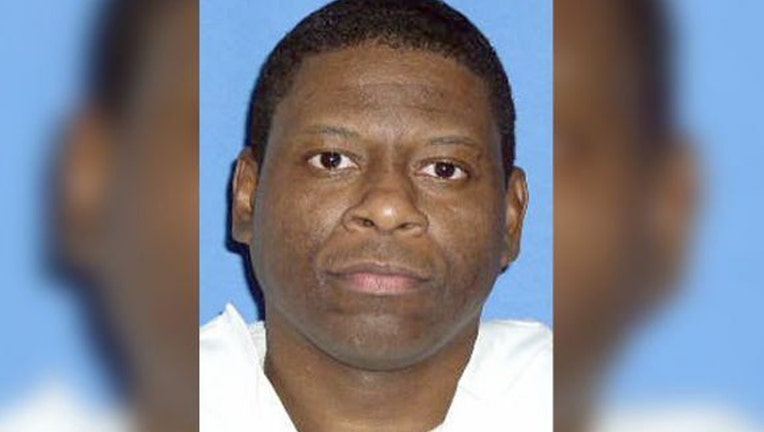Texas appeals court blocks Rodney Reed execution, says case should return to trial court

A Texas court halted Rodney Reed's planned execution just days before he was scheduled to die. (Police handout)
AUSTIN, Texas - The Texas Court of Criminal Appeals issued an indefinite stay Friday to halt the scheduled execution of Rodney Reed amid calls by his supporters, including some celebrities, to reexamine his murder conviction because of new evidence.
The ruling came hours after the Texas Board of Pardons and Paroles unanimously recommended delaying Reed's execution by 120 days. Republican Gov. Greg Abbott was to decide whether to accept the board's recommendation prior to Friday's court ruling, which makes his decision moot. The board has recommended commuting a death sentence only five times since 1982, while Abbott had halted just one imminent execution, in 2018, in his four years in office.
In its four-page order, the appeals court said Reed’s case should be returned to the trial court in Bastrop County so it could examine his claims that he is innocent and that prosecutors suppressed evidence and presented false testimony.
Bryce Benjet, an attorney with the Innocence Project, which is representing Reed, said defense attorneys were “extremely relieved and thankful” to the appeals court.
“This opportunity will allow for proper consideration of the powerful and mounting new evidence of Mr. Reed’s innocence,” Benjet said in a statement.
Reed's case has generated widespread interest, and he has received an outpouring of support from big names such as Beyoncé, Kim Kardashian and Oprah, and from lawmakers from both parties, who are asking that his execution be stopped and his case be reviewed in light of new evidence that they contend raises doubts about his guilt.
Reed, 51, has maintained his innocence in connection with the abduction, rape and strangulation of 19-year-old Stacey Stites, whose body was found in 1996 on the side of a road southeast of Austin.
Reed was arrested nearly a year later after his DNA surfaced in an unrelated sexual assault; he was sentenced to death in 1998.
His lawyers and supporters argue that new evidence points to Stites' fiance, a former police officer named Jimmy Fennell, who was a suspect in the original investigation. Reed said Fennell, who is white, was angry she was having an affair with Reed, who is black.
Prosecutors said Reed's semen was found in Stites and that his claims of an affair were not proven at trial. They said Fennell was cleared as a suspect and that Reed had a history of sexual assaults. Fennell's attorney has said his client didn’t kill Stites.
Fennell was paroled last year after serving prison time for sexual assault. In recent weeks, Reed's attorneys have presented affidavits in support of his claims of innocence, including one by a former inmate who claims Fennell bragged about killing Stites and referred to Reed by a racial slur.
Reed has several appeals pending, including one to the U.S. Supreme Court. In August, his attorneys filed a federal lawsuit to compel DNA testing of crime scene evidence, including the believed murder weapon. His lawyers say the testing, which has been fought for years by prosecutors, could identify someone else as the murderer. That lawsuit is still pending.

